"This is a follow up to a post I wrote, How Do We Learn? How Should We Learn? The he purpose of these posts is to encourage educators to examine practices they take for granted, implement without deep reflection of their efficacy. This post discusses the instructional practice of asking students to memorize information."
Get Started for FREE
Sign up with Facebook Sign up with X
I don't have a Facebook or a X account
 Your new post is loading... Your new post is loading...
 Your new post is loading... Your new post is loading...

Lisa Norris's curator insight,
February 16, 2015 2:12 PM
If we want to build expert learners...we need to take the time to model this ourselves. 
SMARTERTEACHER's curator insight,
February 19, 2015 11:34 AM
The "Sage on the Stage" model must give way to the "Guide on the Side". Concurrently the teacher must model the learners mentality of facilitator of learning. |
Kathy Lynch's curator insight,
March 21, 2015 11:26 AM
Thanks, Beth Dichter. I find the mindsets very understandable and appealing, much like the science habits of mind.

SMARTERTEACHER's curator insight,
April 6, 2015 11:48 AM
We must stop educating students out of their creativity and foster an environment that celebrates the creative genius of the students entrusted to our care.

Janet McQueen's curator insight,
February 1, 2015 5:37 PM
Interesting questions to ask when planning lessons which help to create exciting lesson plans that focus on the needs of the students and to find ways to engage them all. 
Marisol Araya Fonseca's curator insight,
February 8, 2015 12:19 PM
Excellent guide to follow when planning our classes. 
Dalia Rodriguez's curator insight,
February 17, 2016 10:12 PM
This image provides questions to to ask yourself when you want to plan learning activities,. You want to ensure that the activities are age appropriate. |



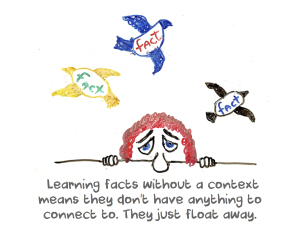

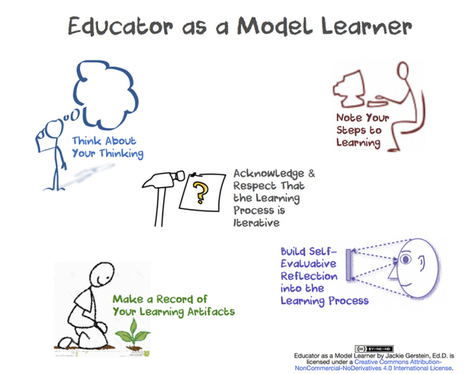
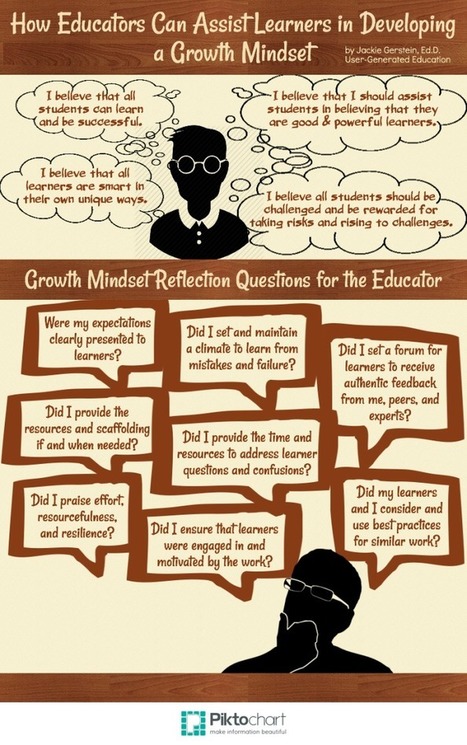
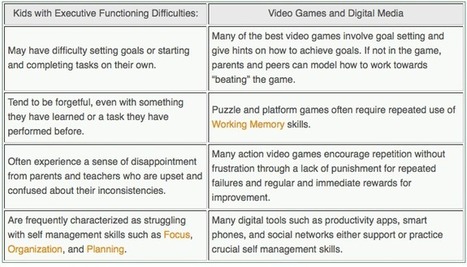
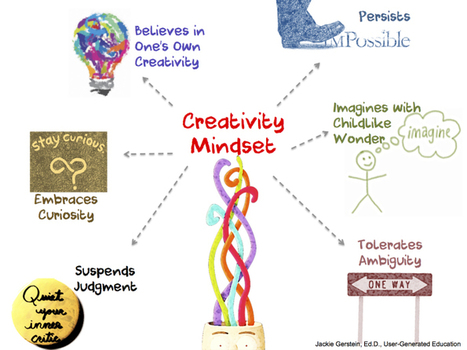
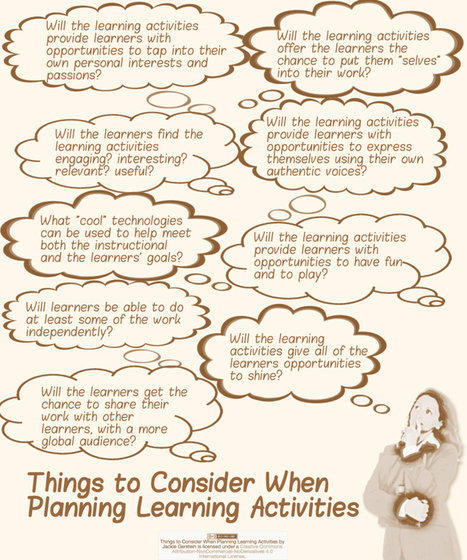
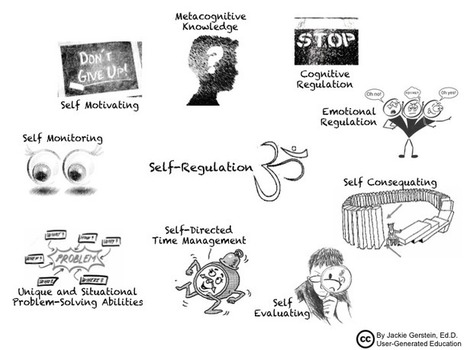





interesting insight
Contexto en la enseñanza, es una necesidad pero cada vez vemos muchos vídeos y lecciones que aparecen de la nada y no están contextualizadas ni en un programa, ni motivadas por unos objetivos ni su relación con un currículo.